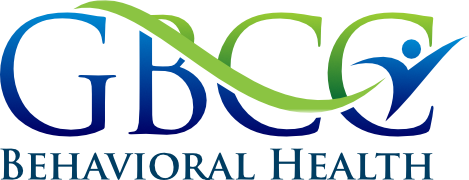
Save time and money with low-cost virtual continuing education seminars.
GBCC now offers inexpensive, convenient, CE programs that meet qualifications for continuing education for social workers, professional counselors, and Maryland psychologists (as required by the Maryland Board of Examiners of Psychology).
Group discounts available for teams of 5-or-more. Email ce@gbcc.com for more information.
Psychologists licensed outside of the state of Maryland: Individuals should check with their licensing Board on whether a specific program will be accepted for continuing education purposes.
Attention: Several states and disciplines have relaxed requirements regarding live / in person Continuing Education due to the COVID-19 pandemic. Please check with your board to see the most current requirements.
GBCC Upcoming Courses:
Self Care: Understanding Self Care, Burnout, and Learning Strategies to Heal
Friday, February 27, 2026 9:00 am to 12:15 pm EST
Culturally Competent Supervision
Tuesday, March 17, 2026 10:00 am to 11:00 pm EST
GBCC BEHAVIORAL HEALTH PRESENTS:
Self Care: Understanding Self Care, Burnout, and Learning Strategies to Heal
Presented by: Lauran Calan, LCSW-C
Date: Friday, February 27, 2026
Time: 9:00 am to 12:15 pm EST
Cost: $30 for Community
Location: Live Webinar via Zoom
ABOUT THE PROGRAM:
This is an introductory training for mental health clinicians who are looking to learn more about self care and burnout. The program is intended to support participants in defining and understanding self care, examining risk factors for burnout, and exploring effective strategies to help engage in self care and prevent burnout.
LEARNING OBJECTIVES:
At the completion of the program, participants will be able to:
- Define and understand what “self care” means.
- List 3 risks that are associated with burnout for mental health professionals.
- Identify 3 strategies that help in preventing and healing from burnout.
AGENDA:
9:00 am Welcome and Introduction
9:15 am Definitions and Relevant Codes of Ethics
10:00 am Video and Breakout Rooms (discussion)
10:30 am Break (15 minutes)
10:45 am Principles of Healing
11:00 am Prevention and Management of Burnout
11:30 am Case Studies (small group discussion)
12:00 am Q&A
12:15 pm Evaluations & Program Ends
About the Presenter:
Lauran Calin, LCSW-C (she/her), is a psychotherapist and Clinical Supervisor at the GBCC Behavioral Health. She specializes in supporting clients navigating anxiety, depression, health-related challenges, and grief and loss. With a compassionate, evidence-informed approach, Lauran is dedicated to helping individuals build resilience and strengthen their overall well-being. In addition to her clinical work, Lauran provides supervision to emerging clinicians, fostering professional growth and high standards of care within the field. She is committed to promoting sustainable practices for both clients and providers.
CE Credit Information:
Self Care: Understanding Self Care, Burnout, and Learning Strategies to Heal is approved by the National Association of Social Workers (Approval #886860446-5481) for 3 continuing education contact hours. Maryland Psychologists and Maryland Professional Counselors can receive CE credit automatically under NASW approval. Psychologists and Professional Counselors in other states can check with their local board to see if NASW sponsored events are automatically approved. All participants must be present for the full program and submit a post-program evaluation form via Google Forms in order to receive their certificate of completion.
Culturally Competent Supervision
Presented by: Nathalie Edmond, Psy.D., RYT-500
Date: Tuesday, March 17, 2026
Time: 10:00 am to 11:00 am EST
Cost: $15 for Community
Location: Live Webinar via Zoom
ABOUT THE PROGRAM:
This workshop will explore the importance of building racial literacy, agility and fluency in clinical supervision and the therapy room. We will identify different types of racial microaggressions, somatics of being a racial being, and wounds of oppression. Participants will identify skills to be developed to have compassionate race centered conversations with a variety of individuals based on their racial identity stage. Principles of anti-oppression will be explored.
LEARNING OBJECTIVES:
At the completion of the program, participants will be able to:
- Participants will identify different stages of racial identity development for white supervisees and racially minoritized supervisees.
- Participants will be able to articulate how to take an intersectional approach that honors multiple identities that centers antiracism.
- Participants will identify three strategies for applying anti oppression in professional life to create more inclusive spaces.
AGENDA:
9:00 am 10:00 am Introduction
10:15 am Mindfulness and somatic resources; Exploration of wheel of power and privilege; Exploration of racial identity; Concrete anti-oppressive behaviors
10:55 am Q&A
11:00 am Evaluations, Program concludes
About the Presenter:
Nathalie Edmond, PsyD, RYT-500 is a licensed clinical psychologist, experienced trauma informed yoga teacher, antiracism educator and social justice warrior who takes an integrative perspective to her consultations and trainings. She believes that transformation happens when we integrate mind-body-spirit and have an embodied dialogue. She grounds herself in the idea that racial justice is a spiritual practice. She has worked in a variety of clinical settings as a clinician, administrator and adjunct faculty. She regularly leads anti-racism, trauma informed and anti-oppression trainings. She is currently the director of a university counseling center, owns a therapy practice called Mindful and Multicultural Counseling and leads an online membership community called Antiracism Revolution. She is the bestselling author of “Mindful Race Talk: Building racial literacy, fluency and agility”.
Dr Edmond completed her Bachelor’s degree in psychology and sociology from Rutgers University (1998). She completed her doctorate in clinical psychology at Wright State University School of Professional Psychology (2003). She has been intensively trained in mindfulness based and trauma sensitive approaches to therapy which include Dialectical Behavior Therapy (10 day intensive), attachment focused EMDR, Sensorimotor Psychotherapy (levels 1 and 2), and various yoga traditions. She completed her 200 hour yoga training in 2015 and her 300 hour training in 2019. She loves making meditation accessible to people and leading trauma sensitive yoga teacher trainings.
She has worked in a variety of mental health settings. She was director of Princeton House Behavioral Health Women’s Trauma Program for 7 years, Associate Executive director of child, adolescent, and adult programs (PHP/IOP) for three years as well as a psychologist at Princeton University Counseling center for five years. She has served on various non-profit boards and been president of her UU church board. She has facilitated a variety of continuing education seminars in a variety of settings and taught a graduate course on multiculturalism and feminism. She owns a group practice in Ewing, NJ called Mindful and Multicultural Counseling. She co-hosted a podcast called Rest and Awaken. She acknowledges she lives on the land of the Lenni Lenape.
She is a 2021 Honoree for Princeton YWCA Tribute Awards which celebrates those who embody the YWCA mission of eliminating racism and empowering women. She has been trained by Lee Mun Wah and Kenneth Hardy in the areas of anti-racism, racial trauma and diversity, equity and inclusion. She is influenced by Black Buddhist teachers, Black feminist ideology, Black liberation theology, antiracism leaders/ancestors and everyone she has ever come into contact with.
CE Credit Information:
__________________________________________________________
Get notifications about upcoming CE courses from GBCC
Complete the form:
